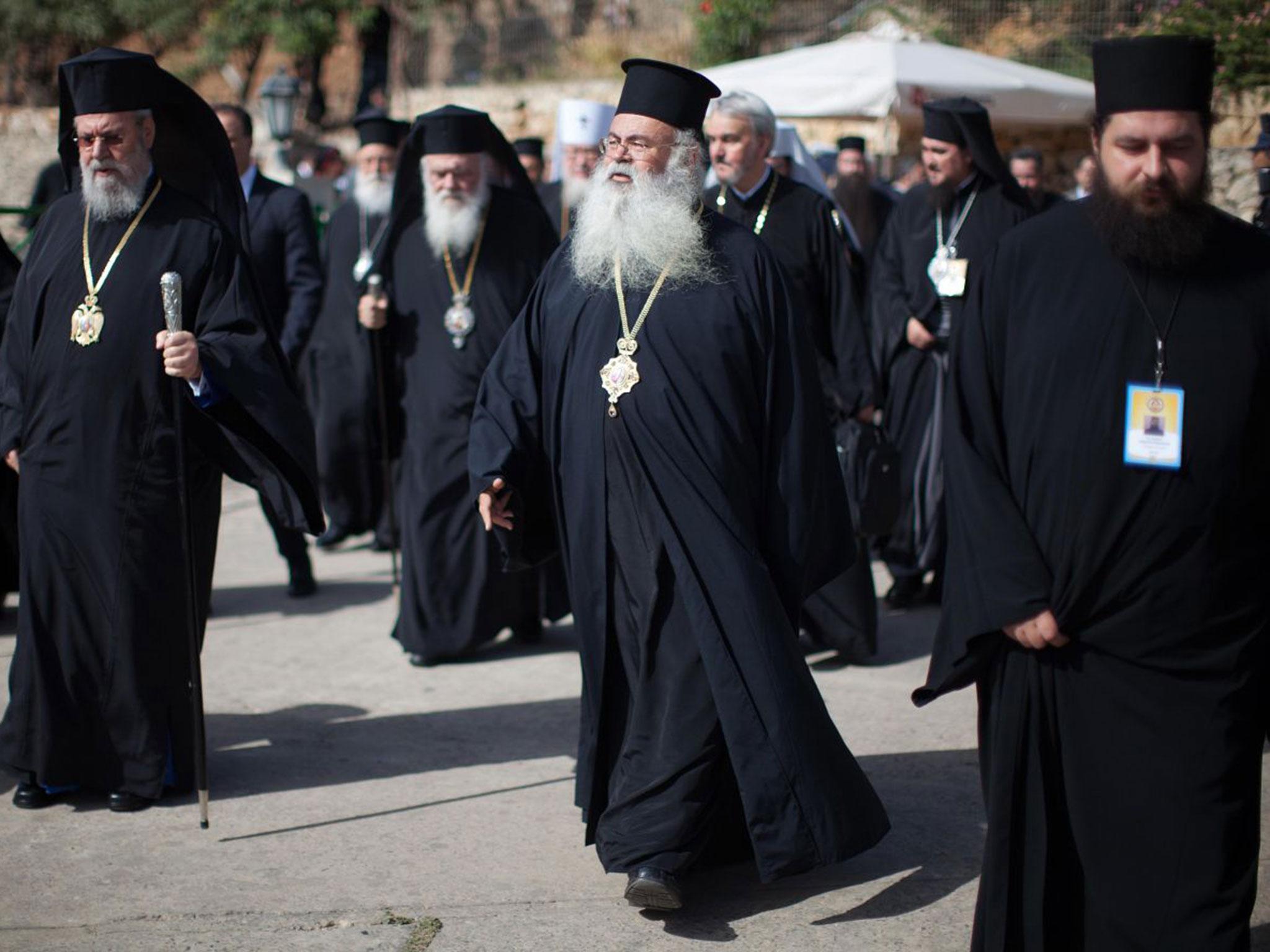Historic Orthodox Christian summit goes ahead despite Russian withdrawal and 'civil war' warnings
First full meeting in more than 1,200 years has been overshadowed by internal tensions

A long-awaited gathering of Orthodox Christian leaders has opened in Crete despite the absence of a Russian delegation, and amidst warnings of a "simmering religious war".
The Holy and Great Council has been 55 years in the planning and was intended to unite all branches of the Orthodox faith and discuss its place in the modern world. It would be the first meeting of all the leaders in more than 1,200 years, the last taking place in 787AD.
But preparations have been marred by very modern geopolitical tensions, particularly between Russia and Ukraine.
“This great and holy council will carry the message of unity... it will help to escape the deadlocks of the present,” Patriarch Vartholomaios of Crete told reporters at the opening of the meeting.
It began as Ecumenical Patriarch Bartholomew – first among equals of all the Orthodox clerics - led prayers attended by other church leaders on Sunday on the eve of the weeklong summit.
Pushed by Patriarch Bartholomew, the meeting was intended to discuss issues such as fasting, and how Orthodox Christianity meets modern challenges, particularly in regards to relations with external religions, namely the Catholic Church (The Orthodox Church split from Catholocism in the Great Schism of 1054. Some Orthodox Christians still regard Catholics as heretics).
However, after the Bulgarian delegation pulled out in early June, citing disagreements with the topics due to be discussed and logistical issues such as the seating plan, the Georgian and Russian delegations soon followed. All three countries are closely aligned.
“We have made a decision that we will not be able to take part in the all-Orthodox synod if other churches do not go,” said Russian Bishop Hilarion Alfeyev. “All churches should take part … and only in this case the decisions of this assembly will be legitimate.”
World's most popular religions
Show all 7The Antioch branch, based in Syria, also refused to attend but for different reasons – they are involved in a dispute with the Jerusalem branch over who should control a small Qatari contingent of the religion.
There were strong doubts the meeting could go ahead without the attendance of Russia, a strong and wealthy branch of the Church. It represents 130 million of Orthodox Christianity’s 300 million followers. Its head, Patriarch Kirill, is the second most powerful see and a close ally of Vladmir Putin.
Observers have suggested that Patriarch Kirill wanted to disrupt the meeting to undermine Patriarch Bartholomew – who is based in Turkey – to strengthen his own position.
The Russian church also oversees the religion in Ukraine. But Ukrainian politicians have overwhelmingly voted to formerly request that Patriarch Bartholomew establishes a “unification council” of the church in the country, leading to an independent and recognised branch of the religion which would not be directed from Moscow.
This would have the potential to loosen Russian influence in Ukraine and likely exacerbate the already poor relations between the two countries.
According to The Economist: “Patriarch Kirill of Moscow has already warned Patriarch Bartholomew that any move to detach Ukraine from Muscovite authority would be devastating for the relationship between Orthodox Christianity’s two most important sees, those of Constantinople [Bartholomew] and Moscow.”
This has led to what some Russian media has called a "simmering religious war", according to the BBC.
In a statement on Friday, Patriarch Kirill said he hoped the religious leaders gathered in Crete could prepare for a full meeting at a later date.
Patriarch Kirill visited Greece in May, joining Russian President Vladimir Putin on a trip to the monastic sanctuary of Mount Athos.
Subscribe to Independent Premium to bookmark this article
Want to bookmark your favourite articles and stories to read or reference later? Start your Independent Premium subscription today.

Join our commenting forum
Join thought-provoking conversations, follow other Independent readers and see their replies